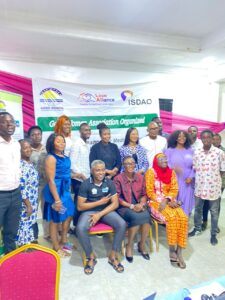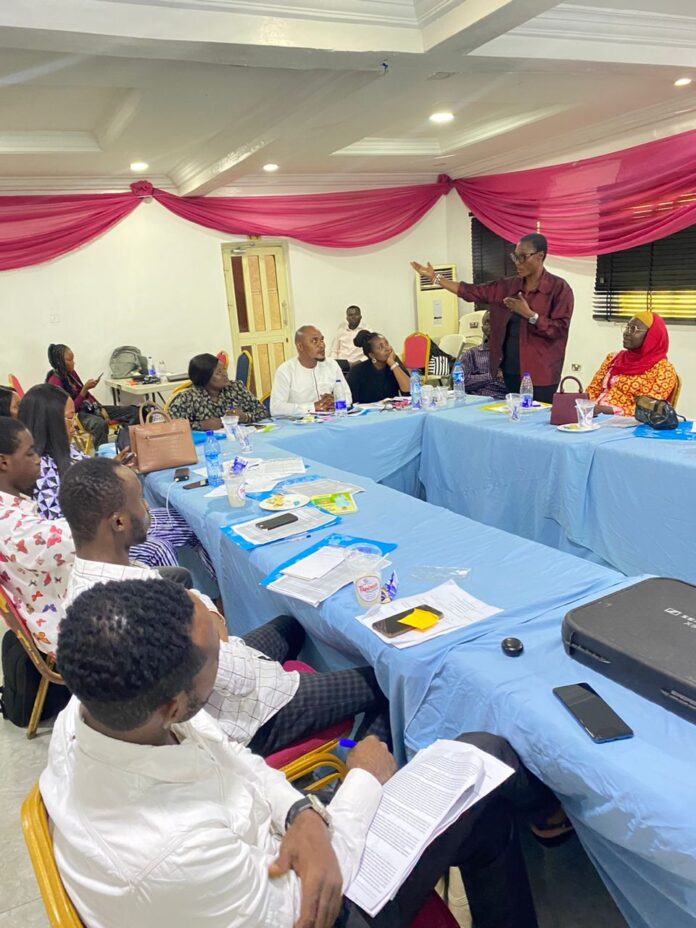The Good Women association, GWA, last week trained media professionals on ethical reporting of Sexual and Gender-Based Violence, SGBV, especially on the vulnerable women and children.
Read More: School teacher remanded for molesting two girls within 24 hours
The 2 day workshop which brought together media personnels from print, television, and online platforms in order to broaden their knowledge on SGBV, was held at the Presken Hotel and Suite, lkeja.
The goal according to the otganiser was to learn how to report on these sensitive issues with empathy and without bias, ensuring that survivors are not portrayed as perpetrators in the process.

Facilitating the training, Barrister Adaeze Feyisayo Samuel, expanded on understanding Sexual and Gender Based Violence which she said it’s act of violating another person against their will, based on gender norms and unequal power relationship which can occur in the private like intimate partners and public space like Police harrassment and brutality that women face.
Emphasising that journalists needed to approach issues of SGBV from the lens of human right violation and health violation, Adaeze highlighted different forms of violation which include but not limited to rape, sexual assault, sexual harrassnent, Female Genital Cuttings, child marriage, financial and economic abuse, Femicide, reproductive abuse, breast ironing, domestic violence, trafficking in persons, intimate partner violence, harmful widowhood practices, emotion/verbal/psychological abuse, forced isolation, Sextotion, revenge porn/online abuse and election related SGBV.
“Statistics has shown that higher percentage of incidences of sexual violence is perpetrated against underaged and therefore issue of dressing should not be a factor to committing sexual violence. If a man can exercise self control over their finances while spending, they should be able to exercise same on what somebody else is wearing. How a person dresses is not a factor to violate her.
“It’s necessary for media personnel to understand that in gender sensitive reportage, they should ensure not to dehumanize victims, but be self accountable to end SGBV, adding that if the media don’t tell the story, someone else will do from their point of view.
“Don’t shift the focus from the perpetrator or violator to the victim. Play the role of sensitizing the public and change social norms. She added.
Continuing, Adaeze emphasized the impact of NGOs and CSOs in raising awareness about SGBV, leading to more cases being reported to law enforcement. She urged the media to continue raising awareness, building trust and accountability, challenging harmful social norms, and monitoring the progress of justice through follow-up stories.
In another session on how to beat bias while reporting, Adaeze lists principles of gender sensitive reporting which include getting informed consent and put it on record, respect victim confidentiality and privacy, fact checked data or information given for accuracy, avoid impartiality by taken side, avoid retraumatization of the victim and be fair in their interactions with the victims or survivors.
Using Female Sex Worker as a case study, Adaeze stated that they are frequently subjected to trauma. She illustrated the significance of employing qualitative data with a human-centered approach to bolster reports on SGBV.
Earlier in her opening address, Mrs Biola Ibiefo, the Executive Director
Good Women Association (GWA) encouraged the participants to be opened to learning, saying that the organisation has seen that gender based violence is a big issue in Lagos State.
Ibiefo advised journalists to use their platform to sensitized the public about the dangers of perpetrating violence against the vulnerable women and children, saying the statistics is alarming and has become epidemic.

















